Our Impact
Discover more about the exciting news and events taking place at Seven States Power Corporation. Stay updated on our latest developments, initiatives, and community engagements as we strive to make a positive impact.
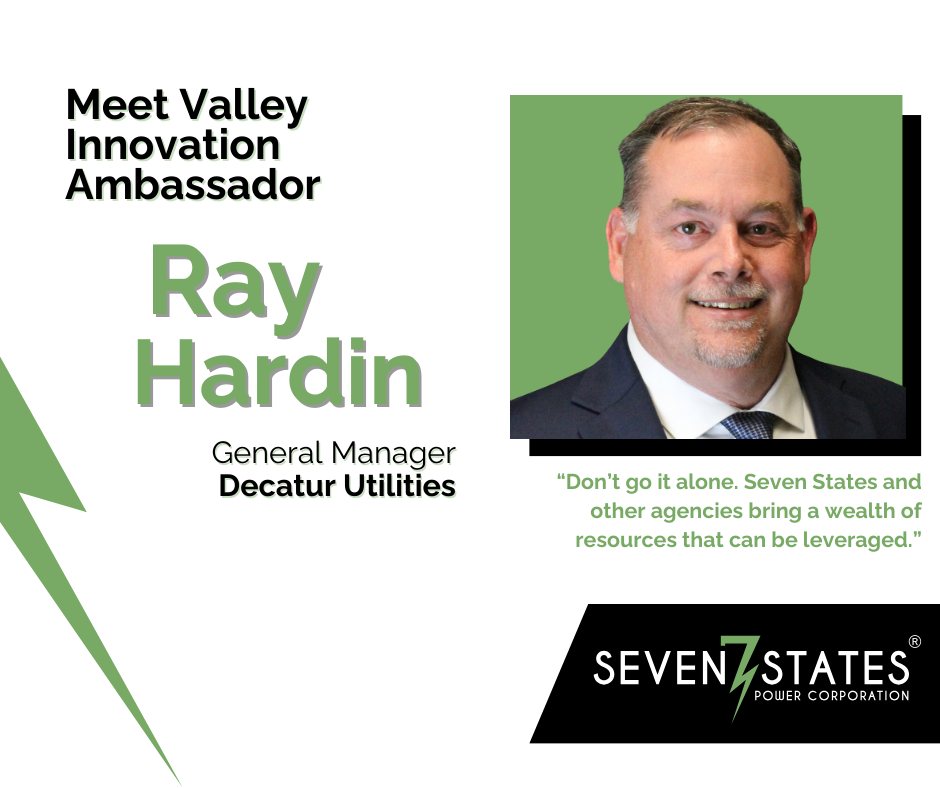
By Jessica Bradshaw
•
December 15, 2025
Leading Decatur Utilities as General Manager, Ray Hardin strives to ensure their system is prepared for the future with innovative solutions. We asked him to share some of the ways he’s implemented technology in his LPC’s footprint. “Advanced Metering Infrastructure (AMI) has helped us improve efficiency, maintenance, and long-term planning, while providing customers with usage data through the customer portal that enables them to look for ways to reduce their energy consumption and their cost. AMI has also integrated with the Outage Management and GIS Systems to improve outage tracking and reduce system downtime. We’ve also leveraged Demand Voltage Reduction technology to reduce the wholesale cost of electricity to keep customer rates as low as possible. And over several years, we have implemented LED streetlights throughout the City of Decatur, replacing less efficient lighting and saving the city on lighting costs.” Ray knows his LPC is responsible for the present and future of his community’s needs, and he wants his community to know that he strategically evaluates new technology with a long-term vision. “I want our customer to know that through our implementation of AMI, improved communications, Demand Voltage Reduction and other programs, we continue to look for ways to keep our system safe and reliable and provide the best service to our community at the lowest possible rates.” With so much technological advancement in the Valley, Ray encourages fellow leaders to lean on strategic partnerships to help bring about community change and benefits using cost-efficient solutions. “Don't go it alone! Seven States, TVA and other agencies bring a wealth of resources that can be leveraged to bring innovation to a local community without breaking budgets. For example, Decatur Utilities was able to install two Level 3 Rapid EV Chargers in our community through a partnership with the City of Decatur, TVA, Seven States, and ADECA. It would have been difficult for us to justify the cost of such a project on our own - but through this partnership, the cost was shared while the benefit to our customers and communities is enormous. Seek out those opportunities for shared funding that will benefit your local area and lean on others who have already researched or implement innovative technologies to get their ideas and advice.”
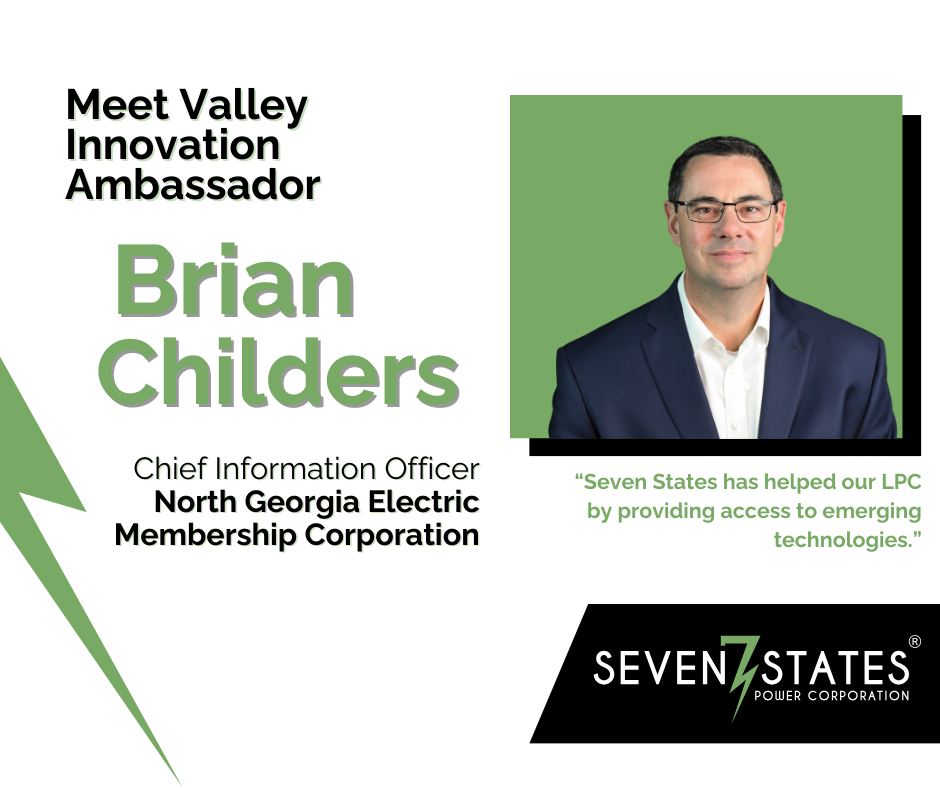
By Jessica Bradshaw
•
December 15, 2025
As Chief Information Officer for North Georgia Electric Membership Corporation (NGEMC), Brian Childers knows how crucial innovative partnerships and technology are in preparing for the grid of the future. Brian’s extensive experience has given him a deep understanding of technological diversity and strategic partnerships. We asked him to share some of the ways their team brought innovation to the North Georgia EMC membership, as well as his experience with Seven States as a trusted partner. “The most needed technology developments in our footprint focused on improving reliability, security, and member service. Upgrades to SCADA systems enhanced grid monitoring and automation, allowing faster outage detection and restoration. Cybersecurity improvements were critical to safeguarding member data and ensuring uninterrupted service. Mobile workforce tools streamlined field operations, enabling quicker response times to outages and service requests. Additionally, the installation of distribution system sectionalizing equipment, supported by fiber expansion, improved fault isolation and communication across the network, significantly reducing outage durations and strengthening overall system reliability for our members. Seven States has helped our LPC support innovation by providing access to emerging technologies and collaborative opportunities. They also share best practices that keep us aligned with industry advancements and prepared for future member needs.” Brian always considers how their members view NGEMC’s investments in innovation. “I want our members to know that our role in innovation is centered on improving their quality of life and ensuring reliable, secure, and efficient service. We invest in technologies like advanced grid automation, fiber-supported communication systems, and modern outage management tools to deliver faster restoration, better reliability, and enhanced security. Every innovation we pursue is designed to strengthen our community—whether by reducing outage times, enabling smarter energy solutions, or supporting future connectivity needs. Our commitment is to keep members at the heart of every technology decision we make.” Brian has learned that being plugged into your community and knowing their needs is fundamental to being an innovative leader. He offered this advice to others who might have questions about how to start bringing innovation to their LPC. “NGEMC’s territory includes communities served by multiple power providers, which limits large-scale community investments. Because of this, innovation should focus on projects that deliver clear, measurable benefits to members. Prioritize technologies that improve reliability while helping keep rates affordable. Stay informed on emerging trends like energy storage and flexible rate options while communicating openly with members to encourage adoption. Above all, maintain a long-term vision that balances innovation with financial responsibility, ensuring every investment strengthens member trust and delivers lasting value.”
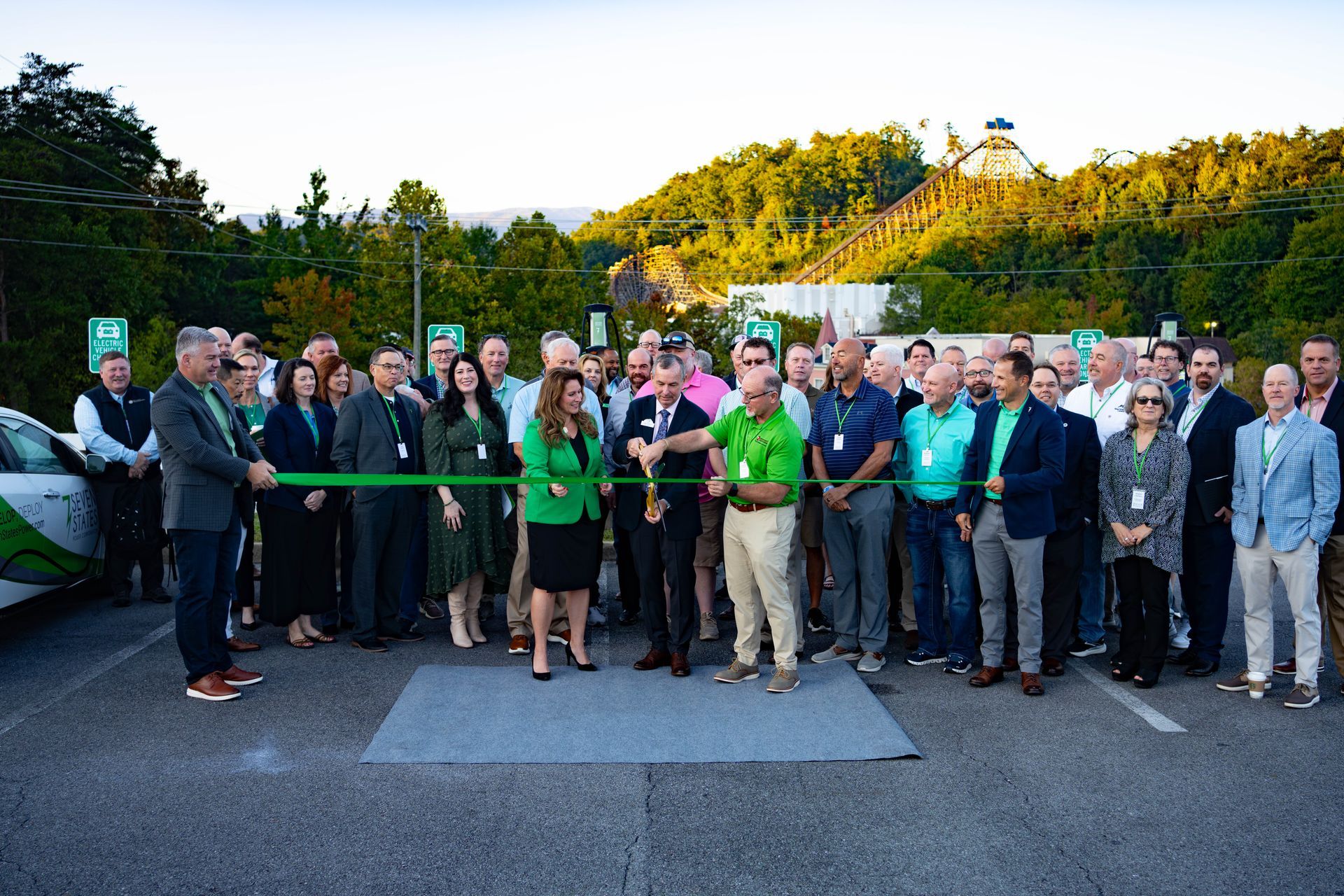
By Jessica Bradshaw
•
October 3, 2025
PIGEON FORGE, Tenn. — October 3, 2025 — Seven States Power Corporation (Seven States), in partnership with Sevier County Electric System (SCES), and Dollywood is proud to announce the ribbon cutting and official unveiling of 7 new electric vehicle (EV) charging stations with 14 charging ports, and 10 solar-powered umbrella charging units at Dollywood, one of the nation’s leading theme park destinations. The new EV charging stations mark another exciting step forward in advancing transportation infrastructure to support the growing demand for electric vehicles in East Tennessee. Designed, developed, and deployed by Seven States, the project reflects a commitment to innovation, community partnership, and serving Dollywood guests. The ten solar-powered umbrellas will be installed in the Country Fair area, providing guests with a convenient place to charge their devices while they enjoy watching ride goers from the comfort of the shade. “Dollywood is a treasured landmark for families and visitors from across the country,” said Betsey Kirk McCall, President and CEO of Seven States. “We are honored to partner with SCES and Dollywood to deliver technology that adds convenience for guests while enhancing innovation in the region.” The addition of the charging stations and umbrellas highlight the shared vision of Seven States Power and SCES to expand access to energy solutions across the region. SCES provides electric power to more than 61,000 customers across Sevier County, Tennessee. As a locally owned public power utility, SCES has served the community for over 80 years with a focus on reliability, affordability, customer service, and innovation. “These projects represent our commitment to supporting innovation to meet the needs of our community. By working together, we’re helping ensure that both residents and visitors have access to the energy solutions of tomorrow, right here in Sevier County," said Allen Robbins, CEO of SCES. The ribbon cutting ceremony celebrates not only the completion of these projects, but also the growing collaboration between local utilities, community partners, and attractions to create a more modern energy future for Tennessee. “This partnership with Seven States and Sevier County Electric highlights the importance of regional collaboration to build infrastructure that supports both the local community and the millions of visitors to the Great Smoky Mountains each year. By investing in this technology, we are helping pave the way for a more sustainable future, while reinforcing our role as a leader in both the tourism industry and the community we call home," said Eugene Naughton, Dollywood Parks & Resorts President. “These investments further enhance our guest experience by providing services to help meet two emerging needs of those who visit.” The charging stations will be available for use to patrons in the Preferred Parking Lot of Dollywood Theme Park beginning October 6, 2025 while the umbrellas are available for use immediately.

By Jessica Bradshaw
•
September 29, 2025
With his extensive experience in the industry, Kendall Bear’s leadership as General Manager of Rockwood Electric Utility has given him the opportunity to ensure his community is prepared for the future. “Although we’ve had many of the following systems implemented for a few years now, looking back, I would say that building a fiber network between our main office and our substations has been beneficial in a variety of ways for Rockwood Electric. This opened the door for additional technology developments such as AMI, SCADA, distribution automation, Dispatchable Voltage Regulation, a 900 Mhz radio system, and a Meter Data Management System. Implementing a GIS system was extremely valuable as well, as we are now able to export that information to other systems such as Outage Management. We have a business and customer portal from CSA that is used extensively by our employees and customers—everyone really benefits from it.” Kendall knows his LPC is responsible for both the present and future of his community’s needs, and he wants his community to know that he is always looking for ways to better their lives. “We are working very hard to provide a reliable power supply to all our customers and using these different technologies helps us manage the power system. We want to be able to provide real-time information to our customers; something they would not normally have access to without these technologies. I would also want our community to know that we are their ‘trusted energy advisor’ and every employee at Rockwood Electric is committed to helping them make good decisions about the power they use.” With so much technological advancement in the Valley, Kendall encourages fellow leaders to make a strategic plan and collaborate with their peers. “The possibilities for innovation are almost endless, and there are a variety of products that are offered by many vendors. It is more than a little overwhelming! I would encourage a new GM to develop a strategic plan if the utility doesn’t already have one that is up-to-date. This may involve getting input from the many stakeholders in the community. After prioritizing your goals, get to work. Finally, I would tell a new GM to talk to his or her peers and colleagues a LOT. They will tell you what they have done that has been a colossal flop so you’ll know to avoid it, or they will tell you what they have been successful with. I guarantee every manager will share their story if you ask.”
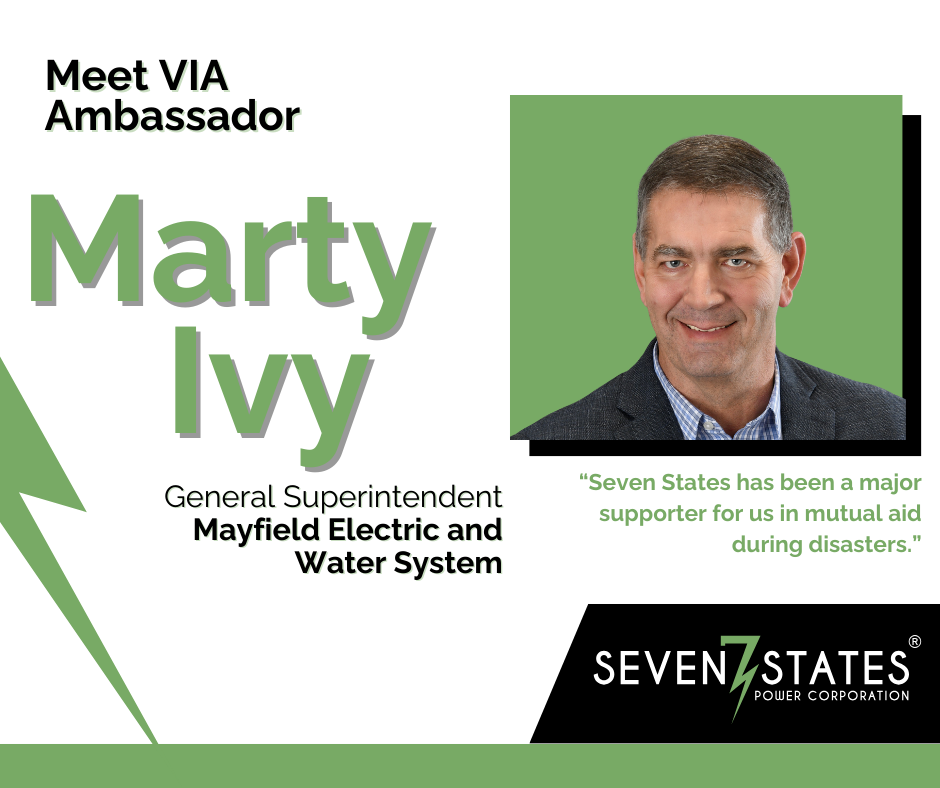
By Jessica Bradshaw
•
September 29, 2025
Marty Ivy knows that when it comes to the energy industry, innovative partnerships and technology help prepare everyone for the unexpected. Leading Mayfield Electric and Water System as General Superintendent, Marty has overcome his community’s fair share of devastating weather events. His experienced leadership has allowed him to place an emphasis on technological diversity and preparedness. We asked him to share his experience with various projects with Seven States: “Most recently, Seven States helped us develop an RFP and select a 1.3-megawatt solar installation that we’re preparing to deploy. Projects like this take time, but once it’s in place, it will serve as our generation to help offset TVA’s requirement. Seven States has also been a major supporter for us in mutual aid during disasters. We’ve had three FEMA events — the remnants of Hurricane Ike in 2008, the ice storm in 2009, and the tornadoes in 2021. So, between disaster recovery and now helping us with solar, Seven States has really been there for us. That’s what makes partnership so valuable — you all make things easier, and we see you not just as partners but as friends who help keep our communities strong. We’re grateful for that support and excited about the projects still to come.” To Marty, the most important thing he wants his members to know is that every decision is made with their needs in mind. “Mayfield Electric and Water System strives to be an efficient and innovative utility while managing both reliability and rates. That’s really what it comes down to — being reliable and keeping costs low for our customers. We’ve already seen how innovation can transform our operations. For example, our customer service representatives have been amazed at how much new technology has improved our outage management system. It’s made responding to customers easier, faster, and far more efficient, especially during storms. There’s so much potential we haven’t even discovered yet in the Valley.” With 34 years of industry experience, Marty knows that change is inevitable. He offered this advice to general managers who might be wondering where to start when it comes to bringing innovation to their LPC. “The best advice I can give anyone is this: you can’t effectively manage what you don’t know. That’s why technology is so important — it puts knowledge of your system right at your fingertips. My advice is, don’t be afraid of change. I’ve been with Mayfield Electric and Water System for 34 years, serving as manager since 2001. Over that time, I’ve seen the industry cycle and evolve about every five years. The one constant is that change always comes, and if you’re afraid of it, you’ll get left behind. So, for future managers and anyone in this industry, my advice is to dive in, get your feet wet, and embrace the changes that move us forward.”

By Jessica Bradshaw
•
September 17, 2025
Seven States Power Corporation (Seven States) is exploring opportunities to deliver new power generation to the Tennessee Valley. The effort is bolstered by a landmark $415 million zero-interest loan and $24 million grant from the U.S. Department of Agriculture Rural Utilities Service (USDA RUS), designed to meet the growing demand for power while strengthening grid reliability. The opportunity signals a creative solution toward advancing American Energy Dominance in the southeast region. “We are excited to get underway with this first of what we hope will be a number of USDA-assisted projects across the Tennessee Valley,” said Betsey Kirk McCall, President and CEO of Seven States Power Corporation. “We understand this initiative aligns with national priorities on energy dominance and security.” The project is intended to use domestically produced solar panels and battery storage that tie into the electric grid, generating a new source of affordable solar power for residential and commercial customers and providing a new source of stored energy that can be used to meet peak demands as needed. The project is proposed to be constructed on industrial land owned by the Economic Development Growth Engine (EDGE) and subleased to Seven States. “MLGW is supporting Seven States in this effort by exploring the feasibility of this project as a way to strengthen and modernize our grid to create greater reliability for our customers and potentially help us maintain some of the lowest electric rates in the country,” said Doug McGowen, President and CEO of MLGW. A subleasing arrangement approved by EDGE is the first step toward this innovative solution. Seven States and MLGW will continue to assess the best technical and contractual path forward to delivering more than 200MW of solar generation and battery storage. This collaboration illustrates how federal funding, coupled with local partnership, can accelerate how energy is generated and transmitted to strengthen the grid. This new generation could serve a growing Shelby County and Tennessee Valley by December 2027. ### About Seven States: Seven States Power Corporation is a generation and transmission cooperative with a mission to leverage innovative technology to design, develop, and deploy energy solutions, together with more than 100 member-owner local power companies, across the Tennessee Valley. A key aspect of Seven States’ formation was the ability to finance utility-scale generation assets, expand energy production, and modernize infrastructure to support the growing grid. About MLGW: MLGW is the nation's largest three-service municipal utility, serving more than 440,000 customers. Since 1939, MLGW has met the utility needs of Memphis and Shelby County residents by delivering reliable and affordable electricity, natural gas, and water service.
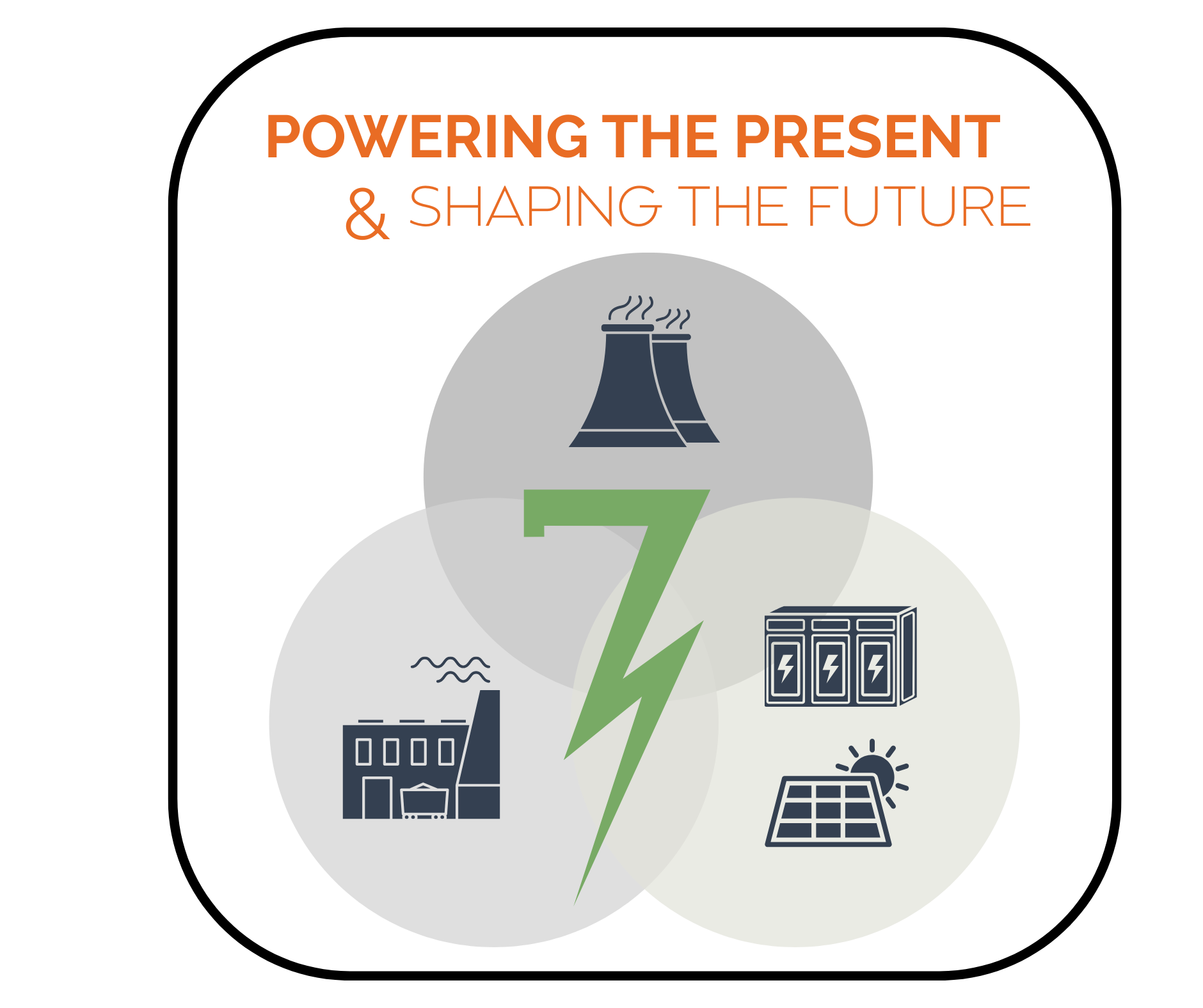
By Jessica Bradshaw
•
September 9, 2025
In today’s rapidly evolving landscape, the energy ecosystem is more complex—and more essential—than ever. Every community, every business, and every innovation depends on reliable, affordable, and abundant power. At Seven States, we recognize this ecosystem—past, present, and future—is critical to unleashing American energy and empowering the Tennessee Valley. Many different forms of energy play a vital role in fueling today’s industries. From nuclear, coal, and natural gas plants that provide baseload reliability, to solar and battery storage that deliver power quickly to the grid, America can dominate this industry and lead globally given the abundant resources and technological advancements present in our country. At the core of our cooperative work is a mission that is as straightforward as it is powerful: megawatts. From the Southaven combined cycle gas plant we co-owned with TVA to the $439 million funding award we received earlier this year from USDA, Seven States has always been laser-focused on building and owning capacity of all sizes that deliver real, measurable impact. Our relationship with USDA opens the door to more potential funding for the Valley. As such, we have submitted for consideration additional funding requests up to $5.6 billion in financing capacity to acquire 4,000MW of utility-scale natural gas units and another $320 million to deploy 300MW of distribution-scale battery storage on 75+ project sites. By working incrementally with each customer and at-scale across the Valley, we are empowering our member-owner LPCs to meet consumer demand in an evolving utility marketplace. As a reminder, Seven States was awarded a $414 million zero-interest loan and $25 million grant to built utility-scale power generation in the Valley. Of note, while other projects throughout the Valley have been impacted by recent federal funding changes, the USDA New ERA funds awarded to Seven States remain intact and the project is progressing forward with a new site. Our mission is not just about preparing for the future; it’s about building the here and now. New power generation, reliability as a service, transportation infrastructure, and grid modernization are not concepts on a drawing board—they are real projects, powering homes, businesses, and institutions today. By anchoring innovation in present action, we ensure that the Tennessee Valley doesn’t just keep pace with change but sets a fast pace for energy leadership. In the end, understanding the energy ecosystem means recognizing its depth, complexity, and interdependence. At Seven States Power, we embrace that complexity as our opportunity—to deliver megawatts, unleash American energy, support economic development, and to lead the Valley into an energy future that honors where we’ve been while advancing where we must go.
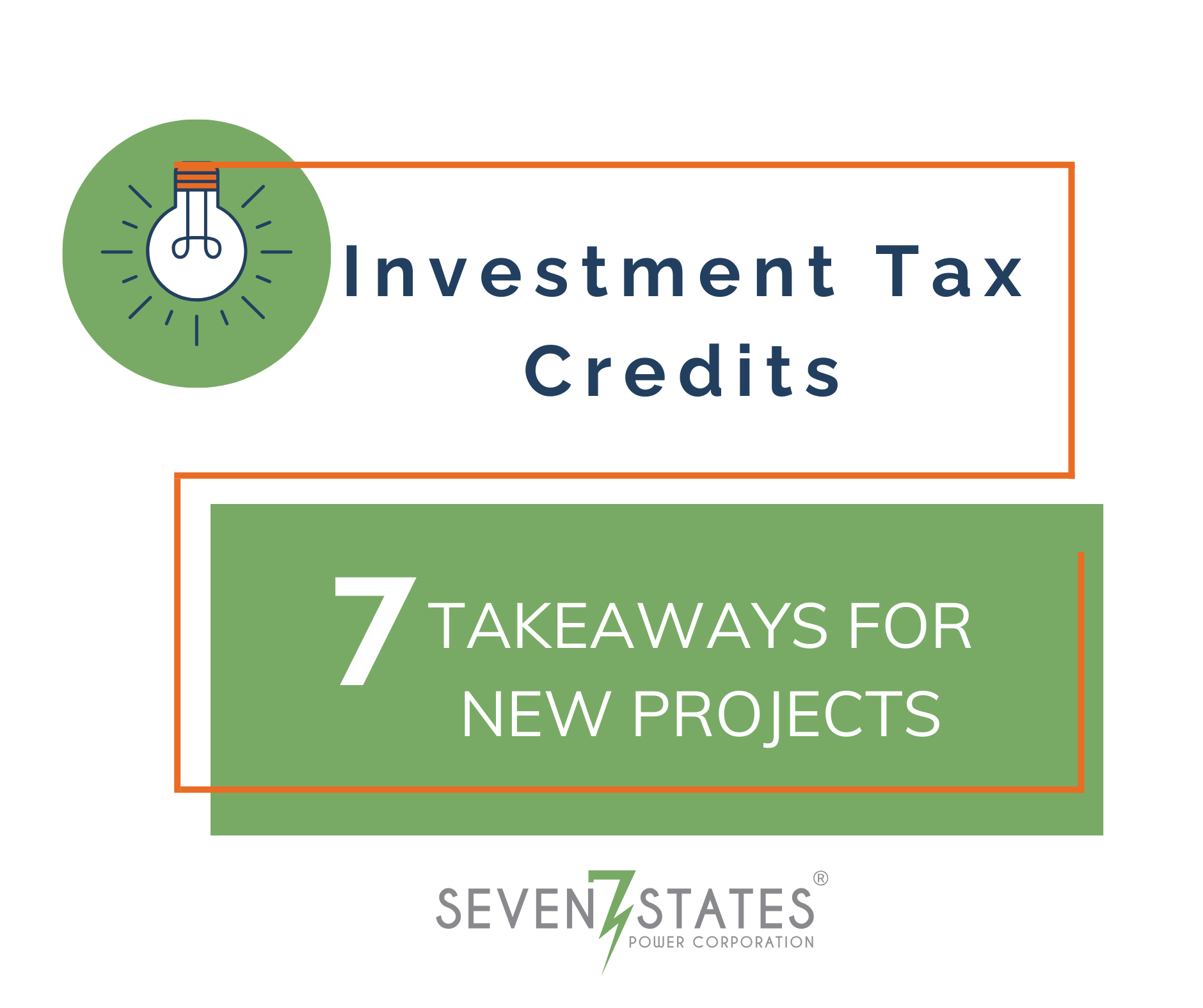
By Jessica Bradshaw
•
September 9, 2025
Investment Tax Credits (ITCs) remain one of the most effective tools available to local power companies (LPCs) and private businesses looking to accelerate energy infrastructure investments. With recent federal legislation revising eligibility and critical deadlines approaching, the time is now to use ITCs toward planned projects. Seven States has closely monitored every stage of legislative changes to the ITC policies, ensuring that project partners stay informed on evolving opportunities and risks. Beyond tracking policy shifts, Seven States has actively advocated for protecting ITC provisions to our federal, state, and local delegations, reinforcing their long-term value for the communities they serve. Following the passage of the One Big Beautiful Bill and subsequent changes by Treasury, here are seven key takeaways on how to utilize ITC to lower costs for anticipated solar and battery storage projects. Seven States recently completed its ITC registration of a battery storage asset and is prepared to guide project partners through these opportunities, as well as offer technical expertise, project management, and financing coordination to maximize every dollar of value. 1. Don’t Miss Critical Deadlines Timing is essential when it comes to ITCs. Credit rates often decline over time, and most projects must meet “begin construction” requirements by July 4, 2025 to secure the highest incentives. Proper documentation is essential to qualify. Seven States helps members stay ahead of these timelines with expert guidance on compliance, permitting, and project execution. 2. Battery Storage Projects Remain Eligible One of the most impactful updates to ITC policy is the protection of standalone battery storage. Moreover, ITCs help make solar-plus-storage a practical reality. These solutions provide load management, outage resilience, and support for emerging operational integrations. Seven States offers the know-how to design and finance these systems, helping members capture the full benefits. 3. Solar Projects Remain Eligible Solar energy continues to be one of the biggest beneficiaries of ITCs. By covering a significant portion of upfront costs, ITCs make solar projects more affordable and financially attractive for LPCs and businesses. This enables owners to grow their generation portfolios, reduce risk, and deliver cost savings to end users. Pairing ITCs with Seven States’ technical expertise ensures solar installations are optimized for performance and long-term community benefit. 4. Be aware of Foreign Entities of Concern (FEOC) Policies Recent updates to federal policy now restrict the use of ITCs for projects that source equipment or materials from “foreign entities of concern,” such as China. This shift makes supply chain diligence more critical than ever, as project owners must carefully select vendors and partners to ensure ITC eligibility and avoid costly disqualifications. Seven States can help navigate these evolving requirements by vetting technology providers, coordinating compliant procurement strategies, and reducing the risk of ineligibility—ensuring projects move forward with confidence and maximum financial benefit. 5. Financing Complexity Requires Expertise Navigating ITC rules, financing structures, and transferability provisions is not simple. The upside is substantial, but so is the complexity. Seven States provides the expertise needed to manage these elements, from structuring deals and securing tax equity to coordinating compliance. 6. The Cost of Waiting Is High Between phasedown schedules, rising project costs, and supply chain constraints, waiting to act can mean missing out on millions in incentives. Project Owners that move quickly will lock in higher ITC rates, secure financing on favorable terms, and be first in line for limited equipment and contractor availability. Seven States is ready to help move projects from planning to implementation before windows close. 7. Seven States Is Your ITC Partner Seven States brings deep technical knowledge and financial coordination expertise. As a trusted partner, Seven States can help LPCs and businesses identify the right projects, capture available incentives, and deliver more reliable energy at a lower cost. The time to act is now—and with Seven States, you don’t have to navigate the ITC landscape alone.
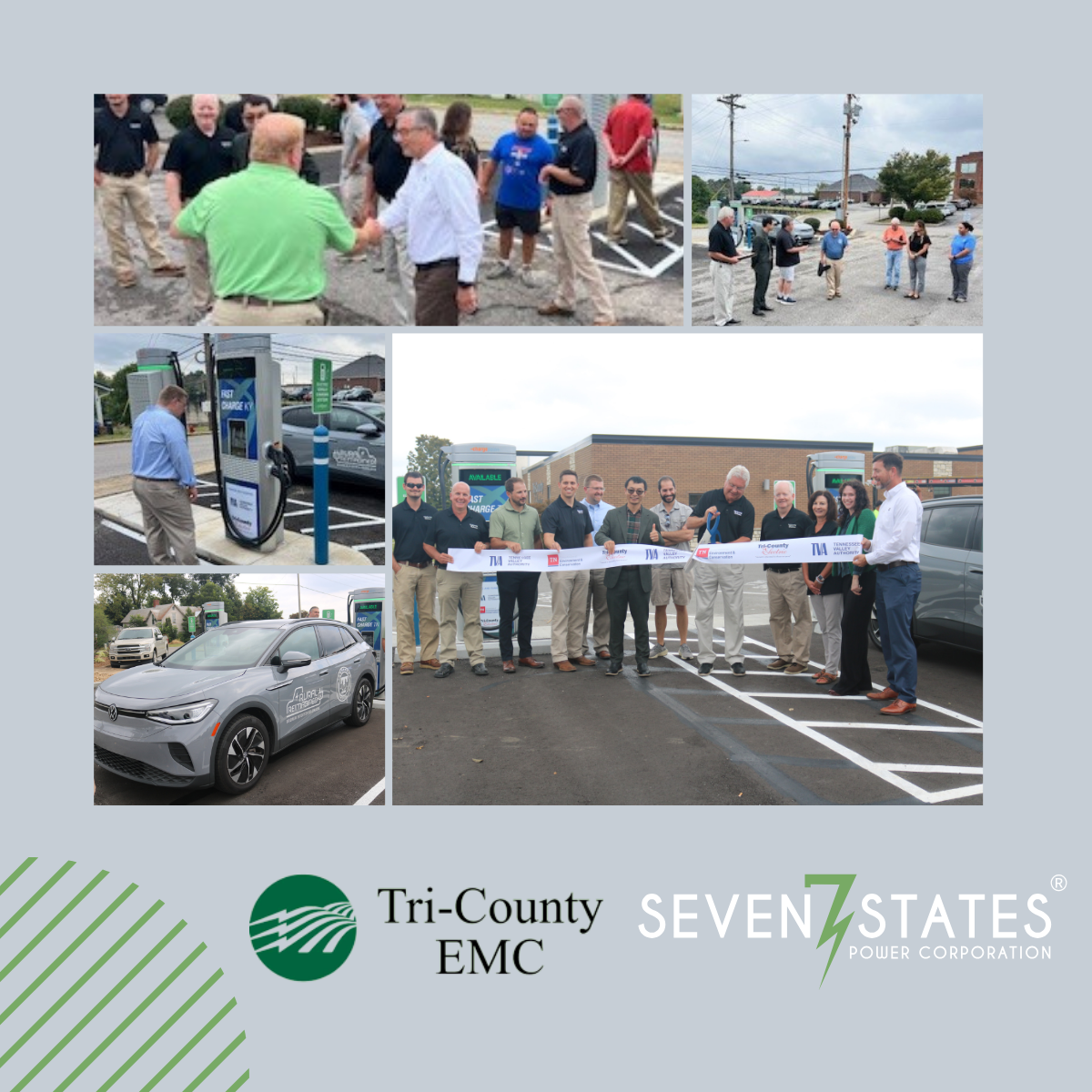
By Jessica Bradshaw
•
September 5, 2025
On September 4, 2025, Tri-County EMC, in partnership with Seven States Power Corporation, TVA, TDEC, and Tennessee Tech University celebrated the ribbon cutting of 4 new EV Fast Chargers, marking another step forward in building transportation infrastructure which supports the numerous auto manufacturers in the area. These stations provide EV drivers with the ability to charge quickly and conveniently. The installation of these new charging stations represents not only an investment in technology but also an investment in the communities served by Tri-County EMC. By offering reliable, high-speed charging, the cooperative is making it easier for residents, visitors, and businesses to travel, commute, and explore all their community has to offer. The project showcases the power of collaboration between local power companies and Seven States Power Corporation in driving innovation across the Tennessee Valley to support economic development and growth of the region.

By Jessica Bradshaw
•
October 3, 2025
PIGEON FORGE, Tenn. — October 3, 2025 — Seven States Power Corporation (Seven States), in partnership with Sevier County Electric System (SCES), and Dollywood is proud to announce the ribbon cutting and official unveiling of 7 new electric vehicle (EV) charging stations with 14 charging ports, and 10 solar-powered umbrella charging units at Dollywood, one of the nation’s leading theme park destinations. The new EV charging stations mark another exciting step forward in advancing transportation infrastructure to support the growing demand for electric vehicles in East Tennessee. Designed, developed, and deployed by Seven States, the project reflects a commitment to innovation, community partnership, and serving Dollywood guests. The ten solar-powered umbrellas will be installed in the Country Fair area, providing guests with a convenient place to charge their devices while they enjoy watching ride goers from the comfort of the shade. “Dollywood is a treasured landmark for families and visitors from across the country,” said Betsey Kirk McCall, President and CEO of Seven States. “We are honored to partner with SCES and Dollywood to deliver technology that adds convenience for guests while enhancing innovation in the region.” The addition of the charging stations and umbrellas highlight the shared vision of Seven States Power and SCES to expand access to energy solutions across the region. SCES provides electric power to more than 61,000 customers across Sevier County, Tennessee. As a locally owned public power utility, SCES has served the community for over 80 years with a focus on reliability, affordability, customer service, and innovation. “These projects represent our commitment to supporting innovation to meet the needs of our community. By working together, we’re helping ensure that both residents and visitors have access to the energy solutions of tomorrow, right here in Sevier County," said Allen Robbins, CEO of SCES. The ribbon cutting ceremony celebrates not only the completion of these projects, but also the growing collaboration between local utilities, community partners, and attractions to create a more modern energy future for Tennessee. “This partnership with Seven States and Sevier County Electric highlights the importance of regional collaboration to build infrastructure that supports both the local community and the millions of visitors to the Great Smoky Mountains each year. By investing in this technology, we are helping pave the way for a more sustainable future, while reinforcing our role as a leader in both the tourism industry and the community we call home," said Eugene Naughton, Dollywood Parks & Resorts President. “These investments further enhance our guest experience by providing services to help meet two emerging needs of those who visit.” The charging stations will be available for use to patrons in the Preferred Parking Lot of Dollywood Theme Park beginning October 6, 2025 while the umbrellas are available for use immediately.

By Jessica Bradshaw
•
September 17, 2025
Seven States Power Corporation (Seven States) is exploring opportunities to deliver new power generation to the Tennessee Valley. The effort is bolstered by a landmark $415 million zero-interest loan and $24 million grant from the U.S. Department of Agriculture Rural Utilities Service (USDA RUS), designed to meet the growing demand for power while strengthening grid reliability. The opportunity signals a creative solution toward advancing American Energy Dominance in the southeast region. “We are excited to get underway with this first of what we hope will be a number of USDA-assisted projects across the Tennessee Valley,” said Betsey Kirk McCall, President and CEO of Seven States Power Corporation. “We understand this initiative aligns with national priorities on energy dominance and security.” The project is intended to use domestically produced solar panels and battery storage that tie into the electric grid, generating a new source of affordable solar power for residential and commercial customers and providing a new source of stored energy that can be used to meet peak demands as needed. The project is proposed to be constructed on industrial land owned by the Economic Development Growth Engine (EDGE) and subleased to Seven States. “MLGW is supporting Seven States in this effort by exploring the feasibility of this project as a way to strengthen and modernize our grid to create greater reliability for our customers and potentially help us maintain some of the lowest electric rates in the country,” said Doug McGowen, President and CEO of MLGW. A subleasing arrangement approved by EDGE is the first step toward this innovative solution. Seven States and MLGW will continue to assess the best technical and contractual path forward to delivering more than 200MW of solar generation and battery storage. This collaboration illustrates how federal funding, coupled with local partnership, can accelerate how energy is generated and transmitted to strengthen the grid. This new generation could serve a growing Shelby County and Tennessee Valley by December 2027. ### About Seven States: Seven States Power Corporation is a generation and transmission cooperative with a mission to leverage innovative technology to design, develop, and deploy energy solutions, together with more than 100 member-owner local power companies, across the Tennessee Valley. A key aspect of Seven States’ formation was the ability to finance utility-scale generation assets, expand energy production, and modernize infrastructure to support the growing grid. About MLGW: MLGW is the nation's largest three-service municipal utility, serving more than 440,000 customers. Since 1939, MLGW has met the utility needs of Memphis and Shelby County residents by delivering reliable and affordable electricity, natural gas, and water service.

By Jessica Bradshaw
•
September 5, 2025
On September 4, 2025, Tri-County EMC, in partnership with Seven States Power Corporation, TVA, TDEC, and Tennessee Tech University celebrated the ribbon cutting of 4 new EV Fast Chargers, marking another step forward in building transportation infrastructure which supports the numerous auto manufacturers in the area. These stations provide EV drivers with the ability to charge quickly and conveniently. The installation of these new charging stations represents not only an investment in technology but also an investment in the communities served by Tri-County EMC. By offering reliable, high-speed charging, the cooperative is making it easier for residents, visitors, and businesses to travel, commute, and explore all their community has to offer. The project showcases the power of collaboration between local power companies and Seven States Power Corporation in driving innovation across the Tennessee Valley to support economic development and growth of the region.
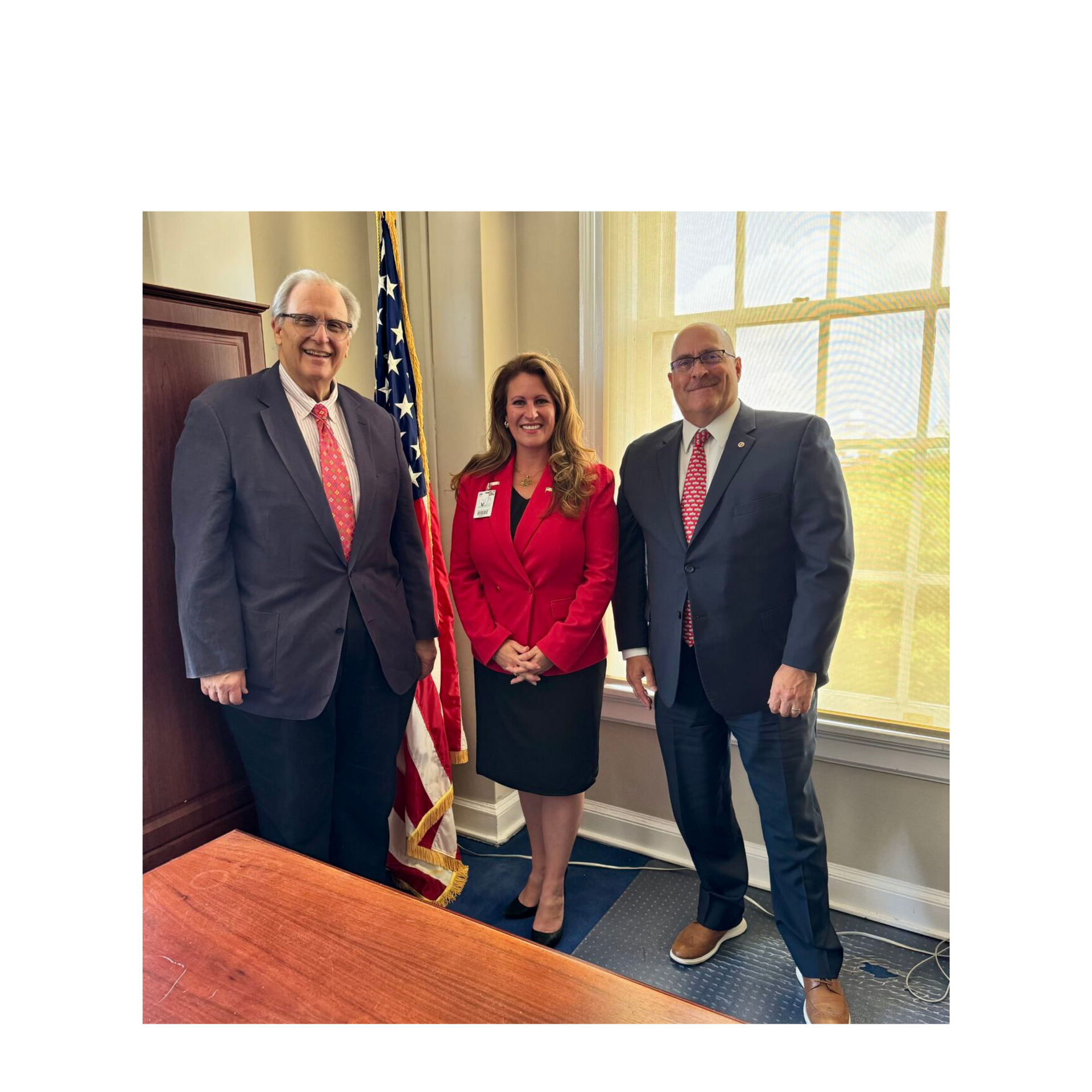
By Jessica Bradshaw
•
June 25, 2025
Seven States Power Corporation’s Board Chairman, Jeff Dykes, and President & CEO, Betsey Kirk McCall, met with Congressional leaders earlier this summer as part of a strategic initiative to advance funding to install technologies that make power more efficient, reliable, and abundant. Dykes and McCall sought to amplify the need for greater federal support to Tennessee Valley LPCs for increasing America’s energy infrastructure during a time where creative options are needed against the backdrop of unprecedented growth. A primary objective of the trip was to listen to legislators’ areas of focus and educate the leaders on how Seven States supports the Valley through times of transition. Many LPCs have voiced concerns over the volume of requests they are receiving to supply energy to data centers. Dykes and McCall emphasized the opportunities Investment Tax Credits (ITC) and alternative financing provide for accelerating large-scale projects that can supply this growing demand for energy. To date, more than 1200 data centers are in development across the U.S. that will consume an estimated 149.6 -239.3 TWH annually. That represents the equivalent of 15-25 large nuclear plants running continuously to supply the need. Dykes and McCall stressed how cooperatives like Seven States can leverage funding models that alleviate the capital outlays for and accelerate construction of projects that can accommodate the expected growth in the Valley over the next decade from these data centers. “It will take LPCs, TVA, communities, companies, and developers working together on such projects to meet the need and keep the lights on,” said Dykes. “We understand that these data centers represent an opportunity for investment in the region. These dollars will improve communities and attract high quality economic development prospects. We want to ensure our member LPCs and TVA are supported and prepared to deliver this opportunity to the Valley,” said McCall. Dykes and McCall also underscored that Seven States was created by LPCs, in partnership with TVA, as a strategic solution to TVA’s debt ceiling limitations—without amending the TVA Act. From 2007 to 2013, Seven States became the first —and remains the only— LPC-led organization to successfully negotiate a sale/leaseback agreement with TVA to co-own a utility-scale generation asset: the Southaven 800MW Combined Cycle Gas Plant. This makes Seven States uniquely qualified as an in-Valley solution to finance and co-own generation assets with TVA. “Seven States was created for moments like this. We often serve as the designer or developer, deploying capital and project management expertise to build reliable or advanced energy infrastructure on behalf of LPCs. This allows LPCs to avoid the burden of raising capital or navigating complex regulatory issues,” said McCall. Another key focus of the trip was to share project updates on the $439 million in funding secured earlier this year through the U.S. Department of Agriculture’s New ERA program. Dykes and McCall outlined how this investment will be used to deliver 250MWs of additional power—aligning with national priorities on energy dominance and security. While in Washington, the team also met directly with USDA officials to provide a progress report on the project. “We are at a pivotal moment where federal partnerships can accelerate the progress our members are already making,” McCall said. “Our goal is to ensure their contributions—and their challenges—are clearly understood as Congress shapes the future of energy policy.” More recently, McCall was also in the area conducting meetings during President Trump’s One Big Beautiful Bill event where Zach Stewart of Sequachee Valley Electric Cooperative was among those recognized for their service to the nation in the energy industry. McCall was on site as the new Rural Utilities Services Administrator at USDA, Karl Elmshaeuser, was announced. McCall met with Christopher McClean, former Acting RUS Administrator as part of a series of meetings to further map project details related to the $439 million awarded to Seven States by USDA. By engaging directly with lawmakers and federal agencies, Dykes and McCall are working to ensure that regulatory frameworks reflect on-the-ground realities. These Washington outreach efforts reinforce Seven States’ commitment to building an energy system that is affordable, reliable, and future-focused. Dykes and McCall expect continued conversations throughout the year as the Valley’s energy future takes shape.

By Jessica Bradshaw
•
June 25, 2025
Seven States recently had the privilege of partnering with the Chattanooga Area Food Bank to provide consulting support for energy efficiency upgrades at their main distribution facility. Serving 20 counties across Southeast Tennessee and Northwest Georgia, the Food Bank distributed over 15 million pounds of food last year—equivalent to more than 12 million meals for families in need. With such a vital and energy-intensive operation, improving energy performance means more resources can go directly toward feeding the region. Our team conducted a comprehensive energy assessment, identifying key opportunities to reduce utility costs through more efficient lighting, refrigeration, and HVAC systems. These recommendations are expected to cut energy use by up to 25%, translating into substantial cost savings over time. By optimizing energy performance, the Chattanooga Area Food Bank can reinvest those savings into expanding food access, enhancing logistics, and continuing their mission to eliminate hunger and promote healthier communities. This collaboration not only underscores the connection between energy efficiency and social good, but also highlights how thoughtful upgrades can deliver lasting value for mission-driven organizations. We're proud to support the Food Bank’s critical work and look forward to seeing the positive ripple effects of this project across the communities they serve.

By Jessica Bradshaw
•
June 9, 2025
Seven States Power Corporation is pleased to announce the appointment of Kim Shumpert as Vice President of Public Relations. Shumpert brings over two decades of experience in growing the capacity and impact of multiple organizations within both the public and private sectors. With both a bachelor’s and master’s degree in Public Administration, Shumpert brings a distinguished background in executive leadership, having guided regional economic development initiatives and directed comprehensive communication strategies across diverse platforms. Her experience includes successfully managing media relations and fostering strong partnerships. In her new role as Vice President of Public Relations, Shumpert will spearhead efforts to increase the organization’s impact, deepen stakeholder engagement, and advance the mission of empowering LPCs to meet growing consumer demand for technology and innovation in an evolving utility landscape. “We are thrilled to welcome Kim to our team,” said Betsey Kirk McCall, Seven States President & CEO. “Her proven ability to build meaningful relationships and communicate with purpose aligns perfectly with our vision for growth and engagement.” Shumpert joins Seven States at a pivotal time in the energy industry. Her leadership will play a crucial role in supporting Seven States Power Corporation’s ongoing commitment to leveraging technology to design, develop, and deploy forward-thinking energy solutions in partnership with LPCs and the communities they serve. Seven States Power Corporation is a trusted partner to 153 local power companies across the Tennessee Valley, delivering customized energy and generation solutions and supporting community success through technology and innovation. To stay up to date on Seven States projects, announcements, and news, subscribe to our newsletter .
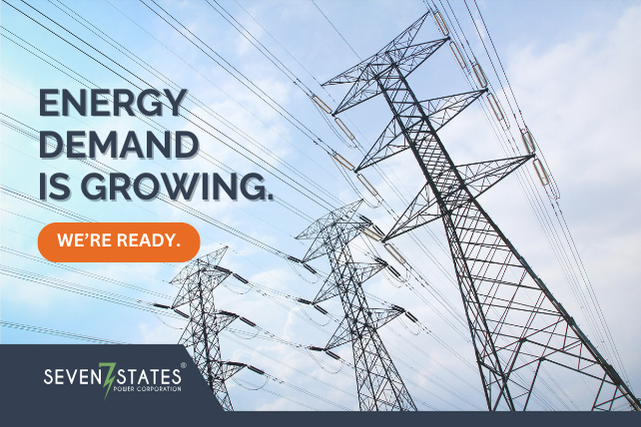
March 11, 2025
For more than 15 years, Seven States has been immersed in the emerging needs of the energy industry and the evolving supply of energy to the region. Seven States was created in partnership with TVA and more than 150 local power companies to finance utility-scale generation assets. In the early years, Seven States and TVA jointly owned an 800MW combined cycle plant in Southaven, Mississippi. More recently, Seven States was proud to announce that it had been awarded a $439,000,000 investment from the U.S. Department of Agriculture’s New ERA program to build 250MW of low-cost energy using a zero-interest loan. The shovel-ready project will bring online 250MW and help ease the State of Energy Emergency. The solar plant, owned and operated by Seven States, will deliver energy across the region to TN, AL, GA, MS, KY, NC, VA, and will power approximately 113,000 homes while creating over 100 construction jobs. The project continues to garner support from local, state and federal officials and is part of an “all of the above” approach to deliver power to consumers. This federal funding will provide our region with much-needed low-cost energy used by residents and businesses throughout the Valley. The Seven States team has been hard at work with our local power company member-owners to develop energy supply strategies that reach beyond this one project. This highlights our dedication to bring multiple energy sources to the grid. Over the years, our work has expanded beyond utility-scale generation to include distribution-scale technologies. We are enhancing reliability through the installation of battery storage units at regional locations such as the U.S. Space & Rocket Center in Huntsville, Alabama, and Montgomery Bell State Park in Burns, Tennessee. Seven States, a G&T cooperative, was created out of the need for innovative solutions. The awarded project is just one example of the innovative thinking and decisive action necessary to tackle the energy challenges of our time. We understand that economic development and job creation stop without power supply. Together with our public power model stakeholders, we intend to “ready the region” and respond to the increase in demand with additional power supply. An opportunity of this magnitude will drive our ability to attract and retain innovative businesses to the region and be a flagship model to the rest of the nation. This opportunity is significant for the region and we encourage you to learn more about the project here. We want to thank the Seven States Board of Directors and our partners for leading boldly to advocate for the USDA funding to supply much needed low-cost energy to consumers across the region. Your support demonstrates how everyone wins when we take innovative action to deliver power to those we serve.
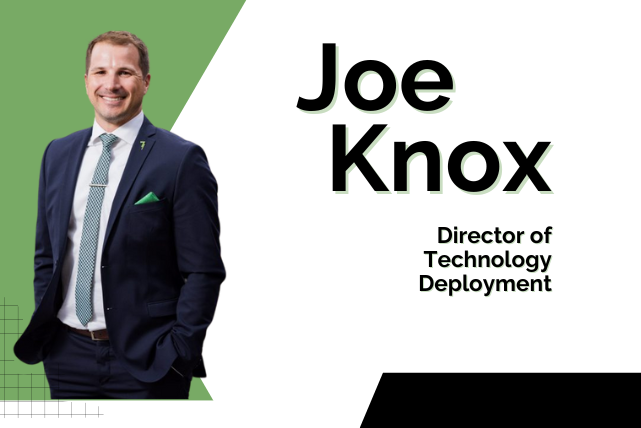
February 27, 2025
At Seven States, we take pride in fostering innovation and supporting employees who are building the grid of the future. Joe Knox, our Director of Technology Deployment, recently contributed to a research paper on the future of electric vehicle (EV) chargers. His expertise and dedication are helping shape transportation infrastructure and manage additional demand for energy. As the demand for EVs continues to grow, the need for efficient, reliable, and accessible charging infrastructure is more critical than ever. Knox contributed to the work of PhD candidate Mehdi Khaleghian of the University of Tennessee at Chattanooga. Knox served as a key industry expert by providing EV charging data for the project. Together, they explored methods to better predict charging station outcomes, which will benefit EV drivers, station owners, and electric utility operators. To date, Seven States has installed more than 250 EV charging stations across 6 different states – that’s nearly 500 EV charging ports in under 4 years. The research paper focuses on the data gleaned from EV charging installations and will inform the collective work of experts within the EV sector as they move forward in building a dynamic power grid. Specifically, the paper explores using embedding vectors to capture the latent characteristics of EV charging stations based on user-station interactions. These factors help improve predictive tasks such as utilization forecasting and infrastructure planning through the use of Machine Learning Models. “Working on this project was an exciting opportunity to contribute to the future of EV charging,” said Knox. “We explored ways to make charging faster, more efficient, and better integrated with the grid. It’s rewarding to see how our research can shape real-world solutions.” As we continue to manage the transition to electric mobility and the infrastructure to support it, real-time analytics from actual deployments lead to data driven decisions, thereby removing the guesswork from next steps. Knox’s contributions demonstrate the power of collaboration and innovation in tackling the challenges of tomorrow. We’re proud to have such forward-thinking minds on our team, driving progress and making a lasting impact on the energy industry. To view Seven States’ EV charging deployments, visit our interactive map.
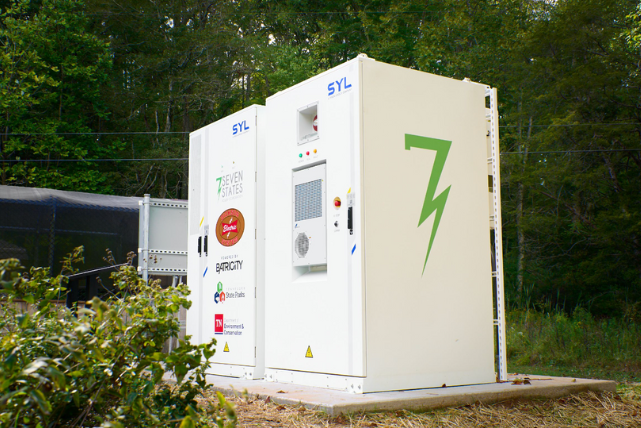
February 27, 2025
Seven States is excited to introduce a new product: Reliability as a Service. Under this new offering, Seven States will acquire battery storage systems and natural gas generators, and provide the capacity to LPCs and their customers. These distribution assets will be used locally for demand response, outage mitigation, and operations, while Seven States will build the capabilities to aggregate the capacity for utility scale benefits. Through its partnership with CAT/Stowers, Seven States is the only Stowers reseller in the region and, as such, can provide special pricing on Caterpillar backup generators to LPC members. Seven States will work with each LPC to analyze energy usage and the economics of a potential system, and support for acquiring it. Two options are available: Seven States will procure, own and install the unit, making the capacity and operation of the unit available to the LPC under an agreement. If the LPC prefers to own the unit, Seven States will provide turnkey project management services to the LPC. We kicked off the launch of Reliability as a Service at our 2024 Annual Meeting with the dedication of a new 150kW – 2hr battery storage system installed at the Montgomery Bell State Park Visitor Center in Burns, TN. Seven States owns the battery and provides the capacity to Dickson Electric System who operates it, and the State of Tennessee hosts the site. Learn more by clicking here. Our goal for this program is to add distributed energy resources (DERs) to local power grids. This offering is optimal for behind-the-meter and front-of-the-meter generation, supplemental power for data centers, and grid optimization. The versatility of the resource is its greatest strength. With Seven States’ Reliability as a Service, LPCs now have a path for quickly meeting increased local demand and operational requirements. The battery storage system and natural gas generators can provide immediate relief to the grid by: Offsetting capacity constraints Reducing wholesale demand charges Enhancing reliability and resiliency Seven States is well-positioned to deploy these solutions. As a non-profit that exists to deliver affordable and reliable solutions that benefit LPCs and their customers, we can leverage opportunities within the marketplace effectively and efficiently to reduce the costs related to installing battery storage systems and natural gas generators. To get started on your Reliability project, contact Lance Irwin at lirwin@7spc.com
Categories
Archive


